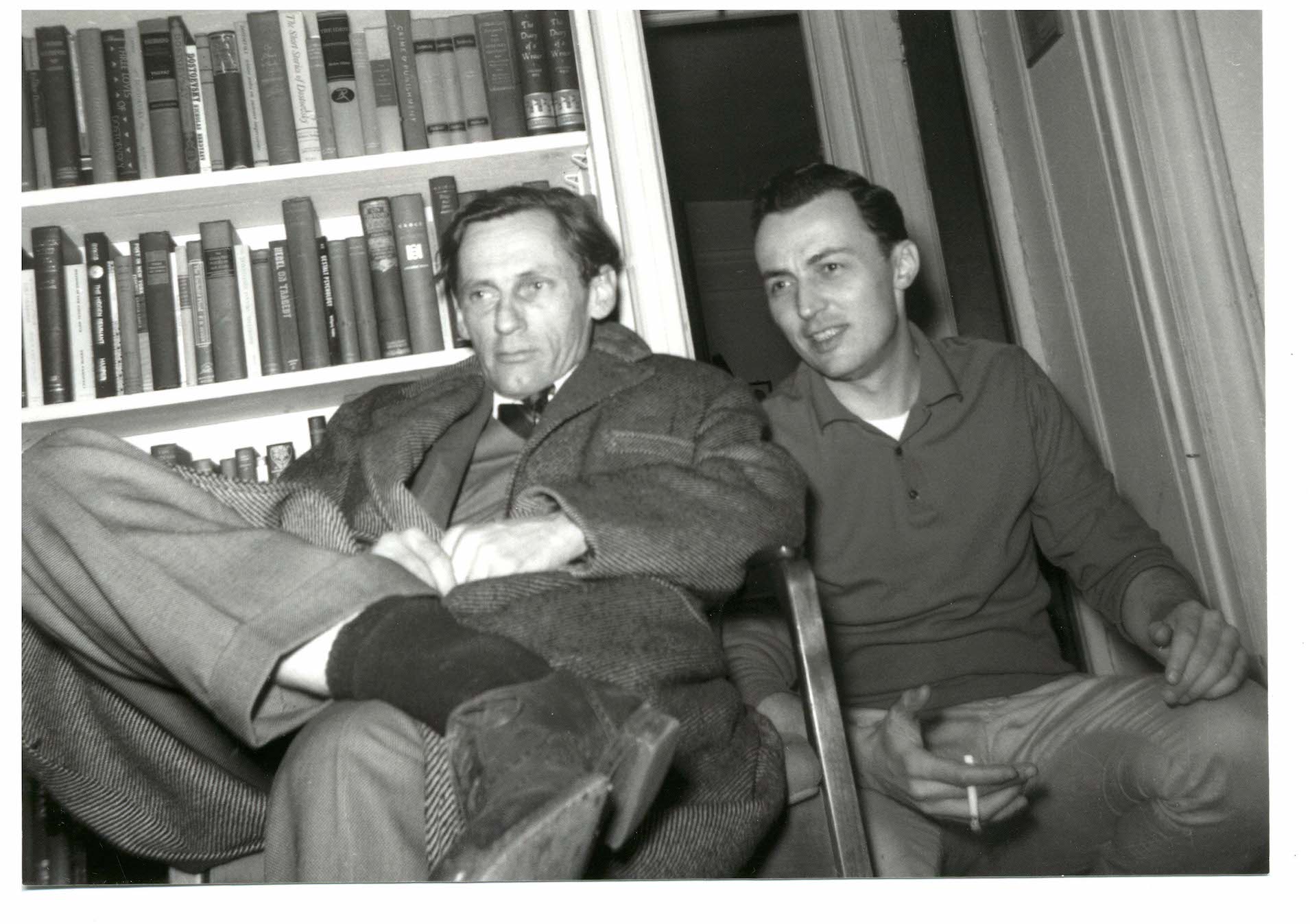
The William Gaddis Centenary Conference
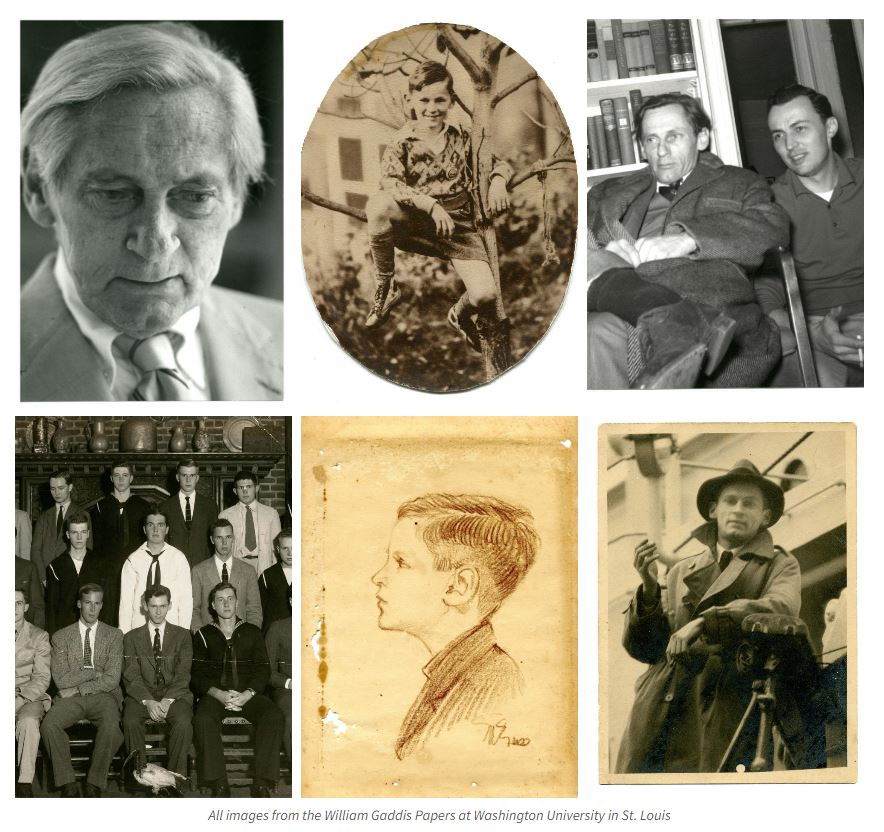
For three days in October, scholars, writers, artists, musicians, publishers, curators, and fans gathered in person and online to celebrate the centenary of novelist William Gaddis (1922-1998). The conference, Beyond the “Very Small Audience”: Centenary, Archive, and Futures, featured academic papers, dramatic readings, roundtables, exhibitions, and more on a wide array of themes, including Gaddis in popular culture, philosophy, artistic inspiration, and pedagogy.
In addition, 2022 marks twenty years since Washington University Libraries acquired the William Gaddis Papers, a major milestone for our Modern Literature Collection. All the more reason to celebrate Gaddis and make new connections with his fans from around the world. Following is a recap of each day’s events (you can read the speaker bios and more in the program):
Thursday, October 20
After a welcome by Associate University Librarian Nadia Ghasedi, the conference opened in Olin Library with Crystal Alberts reading excerpts about Gaddis at the Village Voice Bookshop in Paris from Odile Hellier’s forthcoming memoir Voices from the Village Voice to be published by Seven Stories Press in 2024.
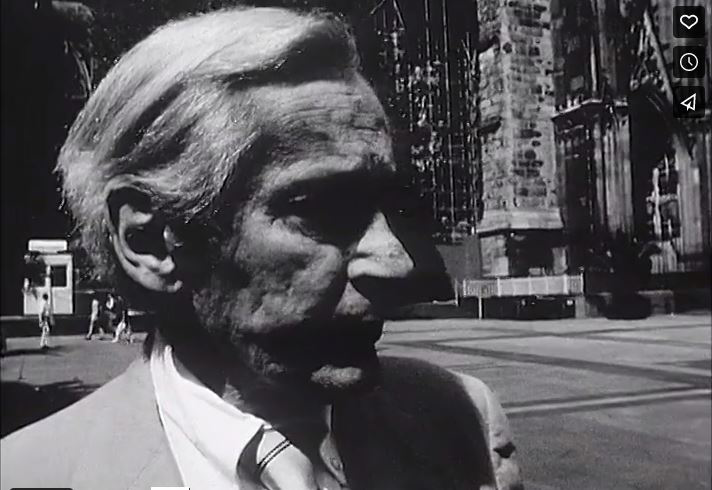
Then we screened a never-before-seen short film called 3 from a Play by Matthew Gaddis which features perhaps the only audio of his father reading his own work (short excerpts from Agapē Agape). The black-and-white film is centered on Gaddis’s 1998 trip to Cologne, Germany, and the recording of his radio play Torschlusspanik, and also includes a film of him relaxing at his home in Key West, Florida.
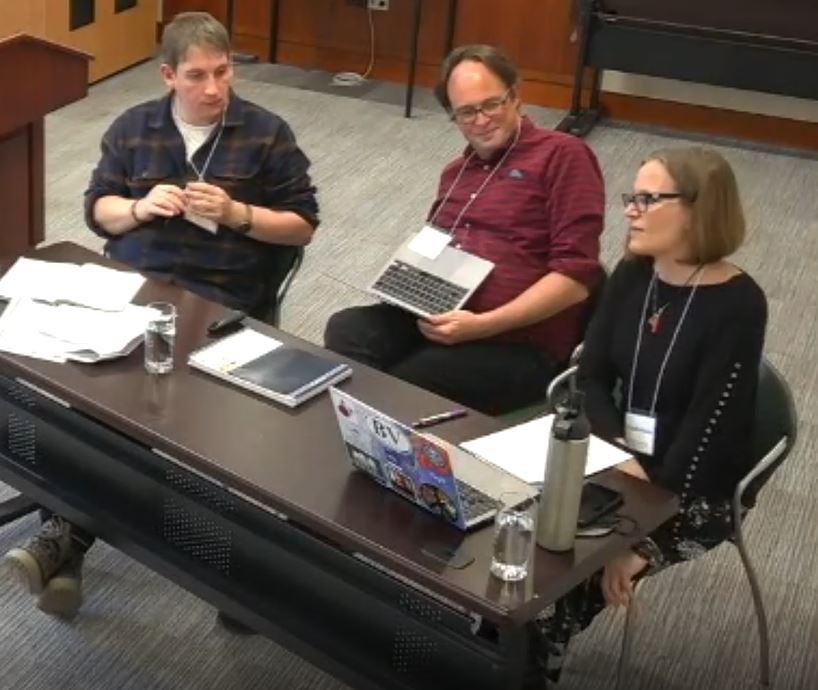
The first roundtable followed with Crystal Alberts, Ali Chetwynd, and Jeffrey Severs discussing some of the unpublished works to be found in the William Gaddis Papers, focusing on two short stories and a farcical one-act play from the 1940s, and a Western screenplay he worked on in the 1960s. This was followed by an open house of highlights from the Gaddis collection and a viewing of the exhibition, Valuable Dregs: Research in the William Gaddis Papers, both curated by Joel Minor, curator of the Modern Literature Collection.
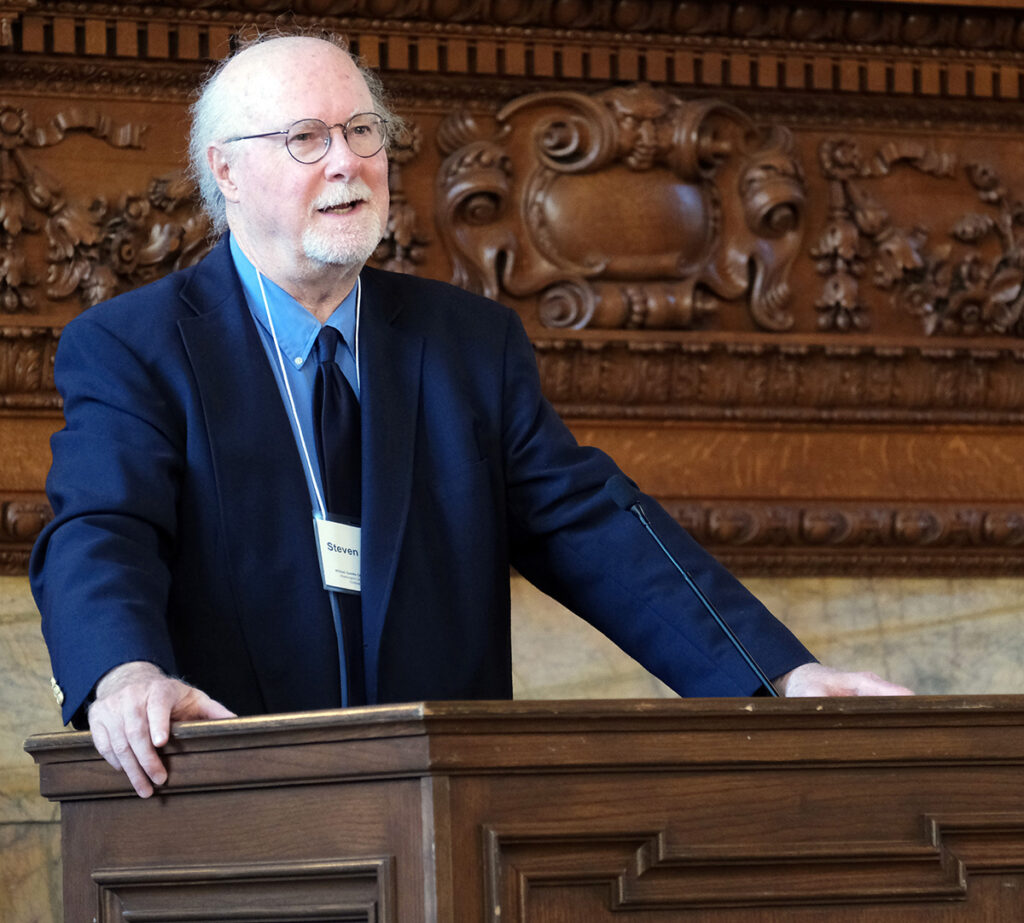
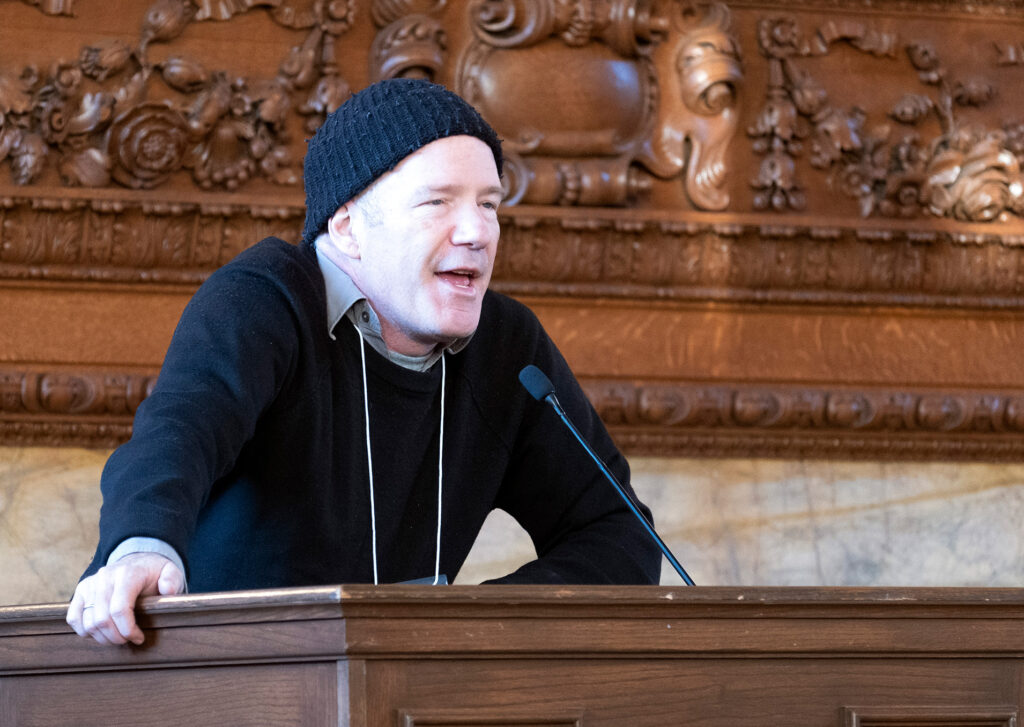
In Hurst Lounge, Steven Moore delivered the keynote address, titled “New Directions for Gaddis Studies” which was followed by three authors reading and discussing Gaddis: Rick Moody who read from A Frolic of His Own, Nick Sullivan who read from J R, and Joy Williams who read an essay paying tribute to Gaddis and his work.
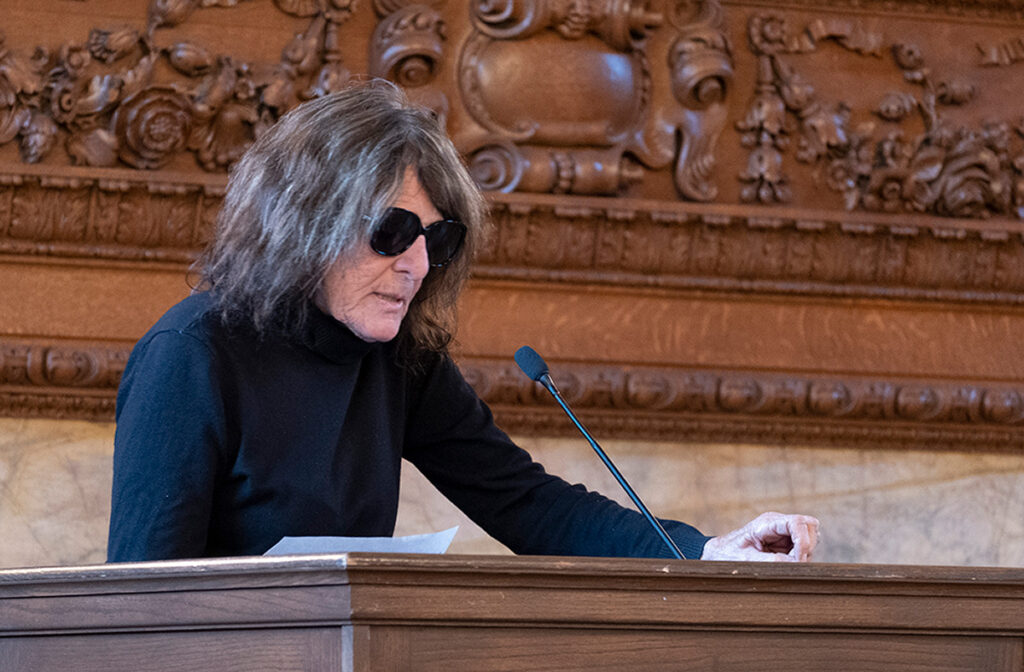
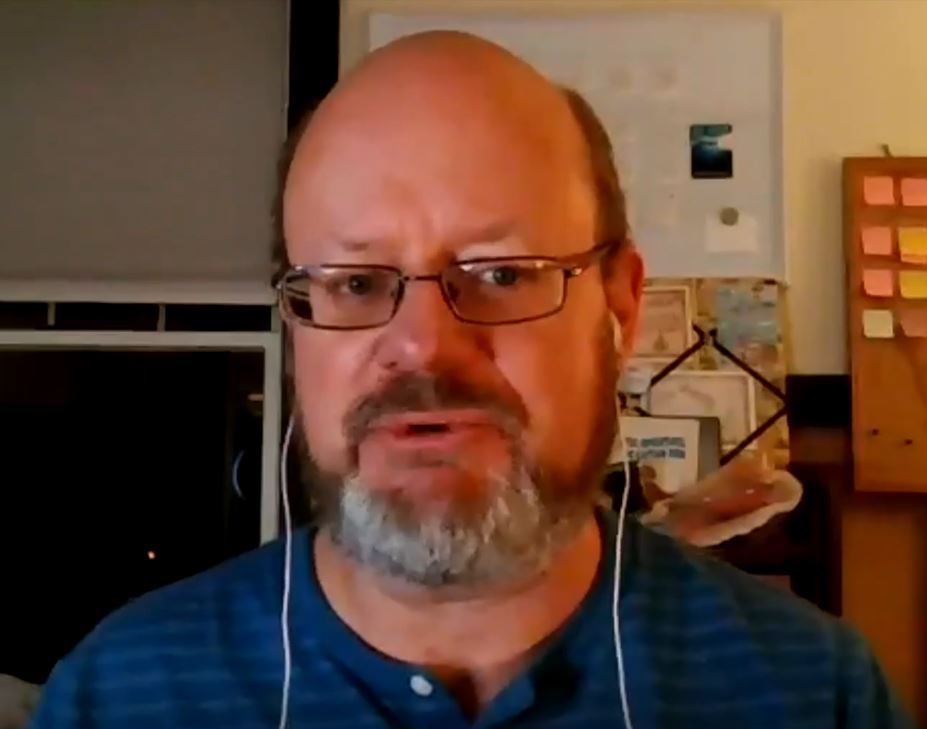
The evening ended with a reception and book sales in Hurst Lounge.
Friday, October 21
All day Friday we were back in Olin Library. The first three sessions consisted of paper presentations. “Historical Gaddis & Literary Gaddis” featured Ali Chetwynd on Gaddis’s propensity to make characters most likely modeled on himself as “pompous,” Ted Morrissey on the close friendship between William Gass and William Gaddis, and David Ting on how the Gaddis Papers and the Austrian author Thomas Bernhard reveal the author’s creative process behind Agapē Agape.
“Justice and the Modalities of the Gaddis Universe” started with Fabrizio Ciccone exploring the relationship between philosophy, comedy, and justice, particularly in relation to A Frolic of His Own and Paul Beatty’s 2015 novel, The Sellout. Then Ryan Hacek presented how Gaddis explored Hegel’s Theory of Agency through the disjointed dialogue of J R. Lastly, Jeffery Severs showed how the Gaddis papers disclose the author’s serious concern over the pop culture character “J R” as Gaddis was trying to adapt his novel of the same name for the screen.
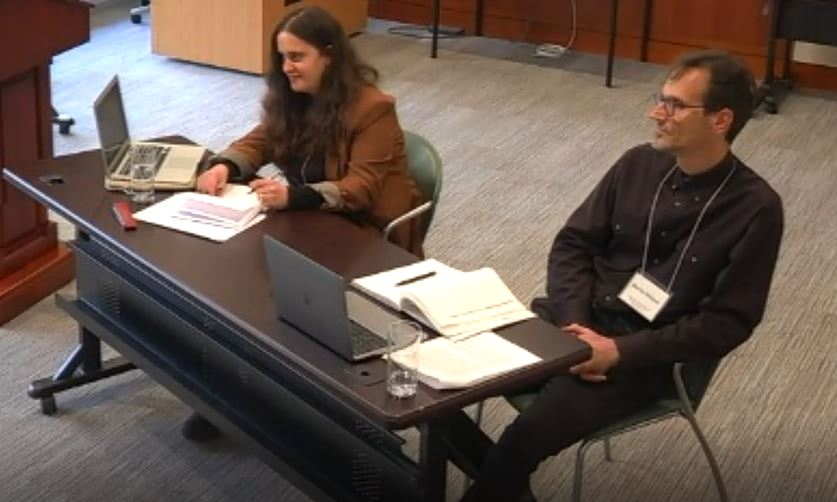
In “Greater Precision On Gaddis’ Form & Technique” the three panelists were Marie Fahd, Martin Klebes, and John Soutter. Fahd talked about how Gaddis reinterpreted theoretical criteria linked to Cubist aesthetics and reinvested them in the narrative techniques of The Recognitions. Klebes followed with a talk that compared and contrasted Gaddis’s dialogue-heavy prose with narrative-heavy productions of post-dramatic theater that started in the 1970s. Soutter spoke about the influence of Hans Vaihinger’s The Philosophy of “As if” upon Gaddis’s conception of fiction and of what fiction is and does.
Roundtable 2, “ Publishing in the Innovative Tradition,” was an informal discussion between Edwin Frank, founder of NYRB Classics and director of the publishing program of New York Review of Books, and Danielle Dutton and Martin Riker, co-founders of Dorothy: A Publishing Project who both also worked at Dalkey Archive Press. While both DAP and NYRP republished J R and The Recognitions (and soon The Letters of William Gaddis too), the conversation centered more broadly on how small presses can bring more obscure, experimental, and/or less represented authors to the reading public.
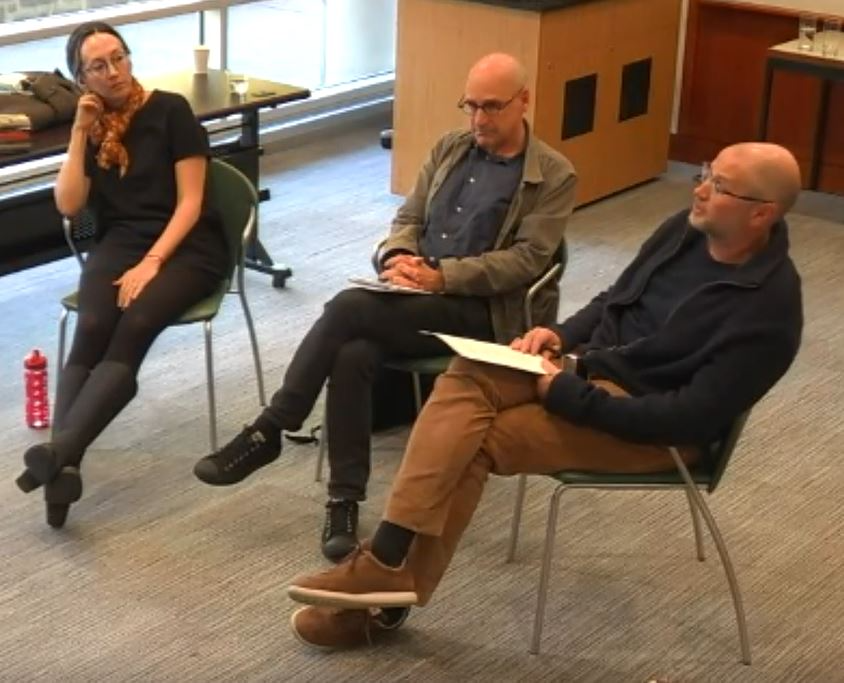
The last two sessions on Friday focused on artists inspired by Gaddis. First, the panelists introduced their respective works to the audience, and then in a roundtable, the artists answered questions presented by moderator Ali Chetwynd, members of the audience, and their fellow panelists.
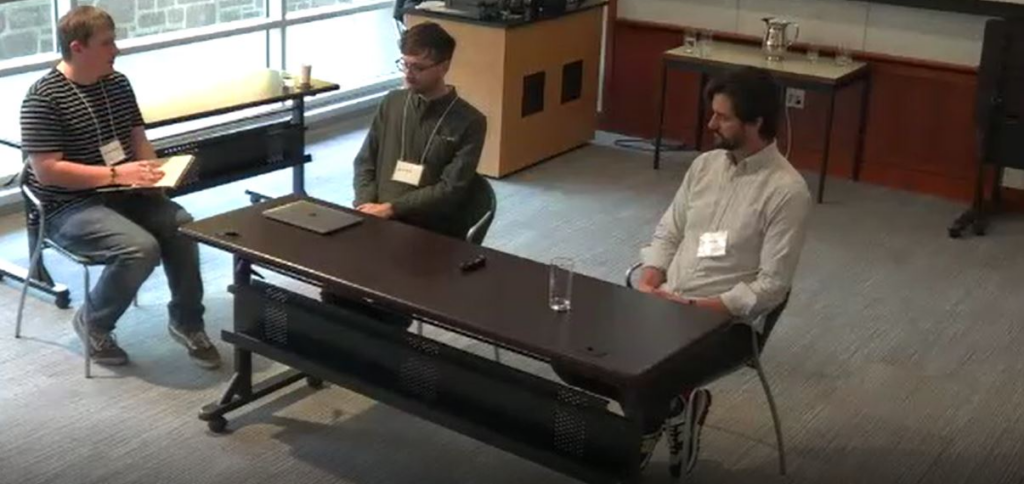
Musician David Bird presented his electronic music piece inspired by Agapē Agape called “Saloon Wars for 4 Disklavier Pianos and Stereo Tape Playback.” Visual artist Edward Holland showed his collage series inspired by The Recognitions created during the early days of the pandemic called “The Depot Tavern Series.”
Thomas Verstraeten and Stef Aerts streamed clips of their impressive multimedia stage adaptation of J R. Visual and performance artist Tim Youd explained how two of Gaddis’s novels fit into his larger, ongoing 100 Novels Retyped project and how the experience inspired subsequent series of pencil and charcoal artwork.
All these works can be experienced in person in the Valuable Dregs exhibition mentioned earlier.
Saturday, October 22
The third day of the conference was held In Wilson Hall, where some attendees paused to recognize they were in the classroom that William Gass often taught in during his thirty years at Washington University. (One of the informal topics at the conference was the growing interest in holding a Gass centenary in 2024!)
In “Gaddis and Language” Paul Ingendaay recounted Gaddis’s growing popularity in Germany in the 1990s and his experiences with Gaddis during the author’s trip to Cologne in 1998. Jim Gauer gave an abbreviated lecture on the philosophy and “conspiracy” of language, especially in J R, and Matthew Clemmer presented his research in the Gaddis Papers on the depiction of the digital encoding formats used to represent information in modern computers and telecommunications in J R.
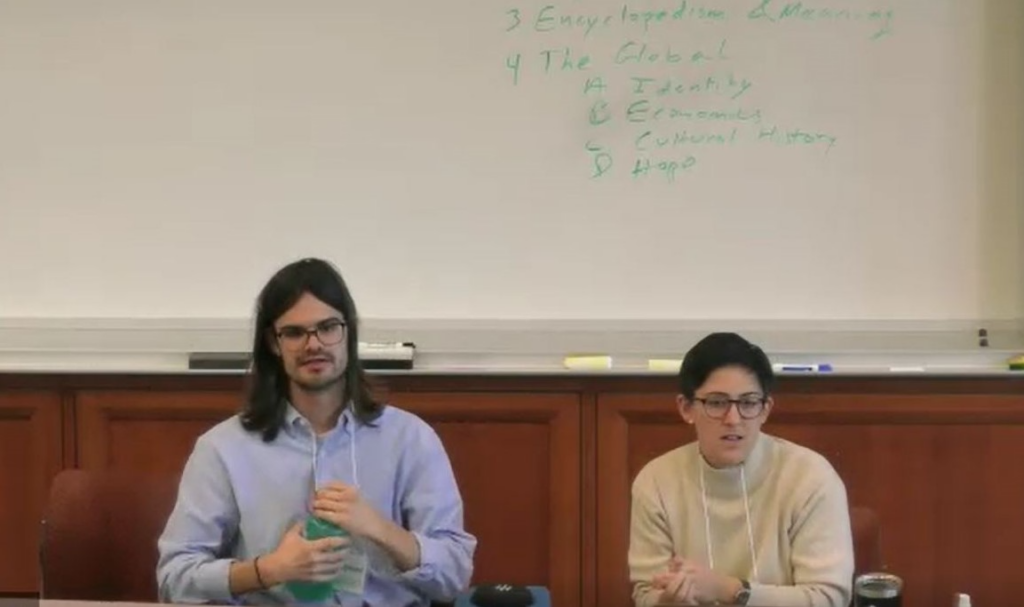
In “Global Gaddis,” the three panelists focused on The Recognitions. Yonina Hoffman postulated that the book is both an encyclopedic novel and a global novel, with the latter aspect being how Gaddis advanced the former. Francine Ozaki spoke on the dearth of Gaddis translations and scholarship in Brazil while comparing the challenges of a translator to those of the artist maintaining originality as explored in the novel itself. Jack Williams demonstrated how the European and Central American spaces in The Recognitions prefigured the author’s harsh critiques of globalization and imperialism in J R and Carpenter’s Gothic.
“Gaddis and Positionality and Marginalized Identities,” the fourth roundtable, featured a discussion on teaching Gaddis to contemporary students who may have umbrage with some of his out-of-date outlooks or depictions or may be tentative about the “difficult” nature of his work.
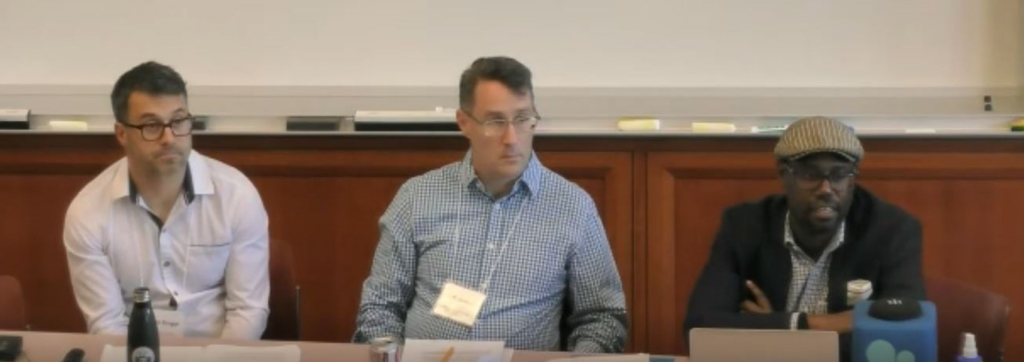
The three roundtable members are both writers and educators. Rone Shavers explained his approach to convincing skeptical students why they should read Agapē Agape. Jacob Singer followed with a short presentation on the “racial gaze” of the two main characters in A Frolic of His Own. Jeff Jackson spoke on using the reparative reading approach to teaching Carpenter’s Gothic in order to find personally useful aspects. As a number of attendees have taught Gaddis in the classroom, a productive discussion with the audience followed the presentations.
The conference concluded with a freeform discussion about future Gaddis-related projects and collaborations. Conference co-organizers Ali Chetwynd and Joel Minor led the discussion which covered topics such as the Gaddis website, possible ways to publish the content of the conference, forming an ALA group on innovative fiction writers, and the possibilities for a William Gass centenary in 2024 and a 50th-anniversary celebration of the publication of Gaddis’s most celebrated novel, J R in 2025.
Conference Recordings, an Exhibition, and Future Activities
In addition to the content linked above, recordings and/or slide decks of most sessions are available to view upon request. For now, we are limiting access to the panels and roundtables since we hope to publish some or all of the content in some way.
The Valuable Dregs: Research in the William Gaddis Papers exhibition which showcases the work of eleven people that were on or inspired by Gaddis’s work is currently on display in the Ginkgo Room of Olin Library, until January 30, 2023. Shortly thereafter a digital version will be launched in order to showcase the resources longer and to a wider audience.
Lastly, if you are interested in being involved in new Gaddis-related initiatives and haven’t already received Ali Chetwynd’s post-conference email, please go here to read the online copy of the Gaddis Conference Follow-up Message and let us know your thoughts by sending an email to gaddiscentenary@gmail.com.